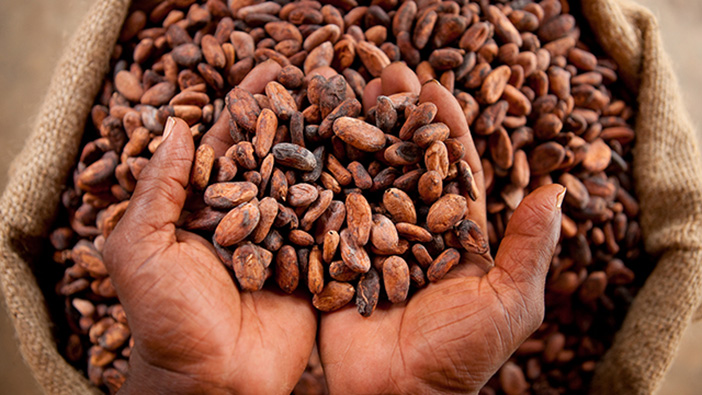Changing Course: The Ghana-Ivory Coast Cocoa Story Leading the Way for an Africa-First Approach to Trade
In June 2019 Ghana and Ivory Coast joined forces to form a cartel in a bid to control world prices for cocoa. The effect of this announcement ahead of the 2020/21 sales was that a floor price was imposed, and the resulting price increase would see cocoa cease to be sold at less than $2,600 per tonne.
As the producers of a combined 60% of the world’s cocoa supply, the move must have surprised very few, considering the continuous reiteration of the need for Ghana (and Africa, as a whole) to break free from the shackles of neo-colonialism by taking charge of their own affairs.
For decades, the global pressure that continued to overwhelm the two countries had always dictated prices. This pressure, characterised by the latest push by the global chocolate industry for cocoa suppliers to lift a month-long ban on cocoa sales in the weeks prior to the Ghana-Ivory Coast announcement, has in the past sought to serve the interests of chocolate producers, much to the disadvantage of farmers in Ghana and Ivory Coast.
Critics will readily (and rightfully) point out corruption as probably the biggest impediment to the establishment of a sturdy negotiating structure in the African bid to control world prices of cocoa. In 2017, the World Bank noted corruption and mismanagement as the twin destroyers of Ghana’s cocoa industry. In a damning report of Ghana’s cocoa regulator, the World Bank pointed out the underpayment of cocoa farmers and the resultant dents in future investments as underlining the need for reform. The regulator, COCOBOD, was reported to be “unable to achieve one of its most important goals – to stabilise farmgate prices at levels that permit farmers to earn an adequate return on their land, labour and capital”.
For the controllers of 60% of the world’s supply of cocoa, Ghana and Ivory Coast may have taken too long in joining forces to control world prices. It is rudimentary business knowledge that negotiating parties will usually put their interests first, and for parties such as chocolate-producing companies, this could also mean attempting to maximise profits by reducing costs. This, they could achieve in more ways than one, primarily through cutting corners and capitalizing on corrupt regulators who also put their selfish interests first. While this alliance between Ghana and Ivory Coast could embody the ‘better late than never’ maxim, it represents yet another example of the exploitation that has become so symbolic of the fight against neo-colonialism and that once catalysed the push for Pan-Africanism. Exploitation that runs across board and is not limited to cocoa dealings only. The process of evaluating the reasons why Africa continues to be short-changed needs to be taken off the backburner. The impacts of slavery and colonialism are numerous and may need to be tackled individually rather than as a whole.
For African countries to be given their due, it will take investments to ensure that the cycle of selling raw materials to the international community at low prices and later procuring the finished goods at great cost is brought to an end. It is essential that the push to unite Africa, especially economically, is promoted to ensure an Africa-first approach to trade. In the spirit of Africa-first approach to trade, I believe I speak for the rest of the continent to say that there is much expectation on the African Continental Free Trade Area (AfCFTA), which is set to officially commence operations from January 1, 2020, to strengthen foundations where there are and build foundations where there aren’t towards reaching a critical point in our economic history and emancipation.








